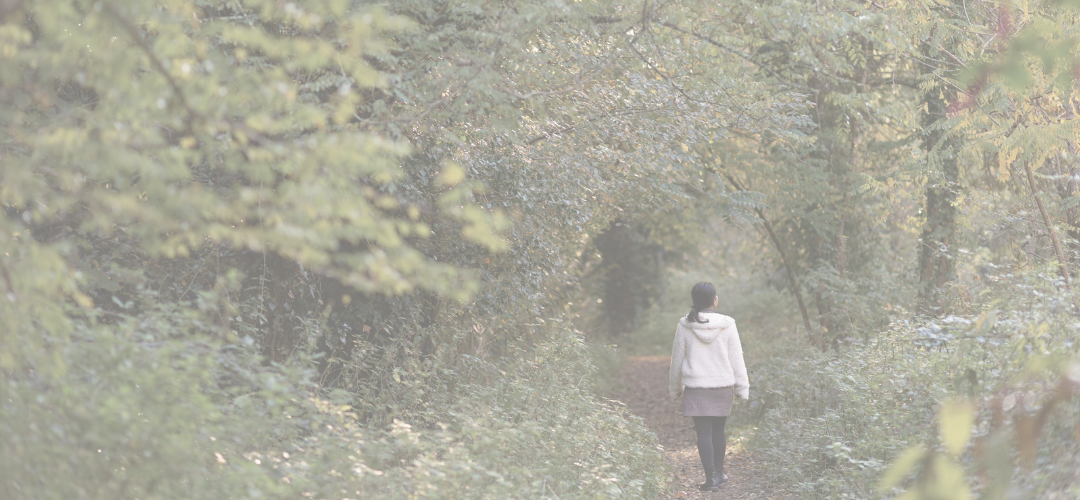Self-Care Part One: Recognising the Signs of Declining Well-Being
We often think of self-care as something extra — something we do after everything else is done. But what if self-care is actually one of the first ways our inner world tries to speak to us?
In this week's reflection, I want to explore how self-care (or the quiet slipping away of it) can become a subtle but powerful signal — letting us know that something is shifting beneath the surface.
What is Self-Care, Really?
Self-care isn’t just about what we do — it’s also about what we don’t do.
It’s the gentle, everyday choices that support our well-being: getting enough sleep, making nourishing food choices, taking a walk in the morning light, or giving ourselves space for rest, laughter, or connection.
But it’s also choosing not to overextend ourselves. Not to skip meals or put off that phone call we know will lift our spirits. Not to stay up late watching “just one more” episode when our body is quietly begging for sleep.
And this is where the conversation deepens…
When Self-Care Starts to Slip
We don’t always realise it right away — but one of the first indicators that our well-being is in decline is when self-care begins to quietly fall away.
We might:
Start hitting snooze more often
Crave quick comfort foods instead of nourishing meals
Skip movement, even though we know it helps us feel better
Withdraw from social connections or put off doing things that bring joy
Stay up late, scroll endlessly, or lose interest in routines we usually enjoy
These shifts are not flaws — they’re signals.
Signals that something might need attention, or that we're simply tired and stretched.
The Contrast Is What Makes Us Notice
Life is full of contrast — light and dark, energy and fatigue, clarity and confusion. We aren't meant to feel good all the time. But when we know what well-being feels like in our body, it becomes easier to recognise when we’ve drifted away from it.
For me, one of my personal indicators is reaching for more coffee and whatever chocolate I can find (usually the cheap stuff — not my usual dark squares!). When that craving creeps in, I’ve learned it’s a sign that I’m overtired, overdoing, or both. It’s not a problem to fix — it’s an invitation to pause.
What’s your sign?
Decline Doesn’t Mean Disaster
Recognising that we’re not at our best doesn’t mean we’re failing — it means we’re listening.
And that awareness gives us the chance to gently shift before we hit rock bottom.
Sometimes decline is subtle. Other times, it’s tangled in habits that have become automatic: staying up too late, skipping meals, saying yes when we mean no, or relying on coping strategies that don’t really serve us.
These moments aren’t about shame — they’re opportunities to reconnect with what truly supports us.
Your Self-Care Is a Compass
Self-care isn’t just about candles or bubble baths (though they are lovely).
It’s about noticing what gives you energy — and what drains it. It’s about creating space to ask:
What’s changed in my routine lately?
What am I craving more of — or avoiding altogether?
Which small habits are slipping, and what might that be telling me?
Sometimes, we can catch these patterns on our own. Other times, we need support to step back and look at the bigger picture. That’s where counselling or coaching can help — connecting the dots between your self-care and the deeper layers of your life.
A Gentle Invitation
This week, I invite you to notice — without judgement.
Notice what’s working and what’s not.
Notice how your body feels, what your heart is whispering, and where your energy is flowing.
You don’t have to overhaul everything. Just take one small step.
Maybe that’s going to bed a little earlier, choosing a nourishing meal, or pausing for a quiet breath.
🌸 If this topic speaks to you, I invite you to explore it a little deeper:
Watch the full discussion on 🔗 YouTube ✨ NEW - You can now also🔗 Listen on Spotify
To gently support your self-reflection, 🔗 Download the journalling worksheet
Enjoy a guided meditation to reconnect with your inner signals, 🔗 Listen on YouTube ✨ NEW - You can now also🔗 Listen on Spotify
If this post brought up thoughts or feelings you'd like to explore further, I’m here to support you. Book a one-on-one session to gently explore what’s unfolding within you.


